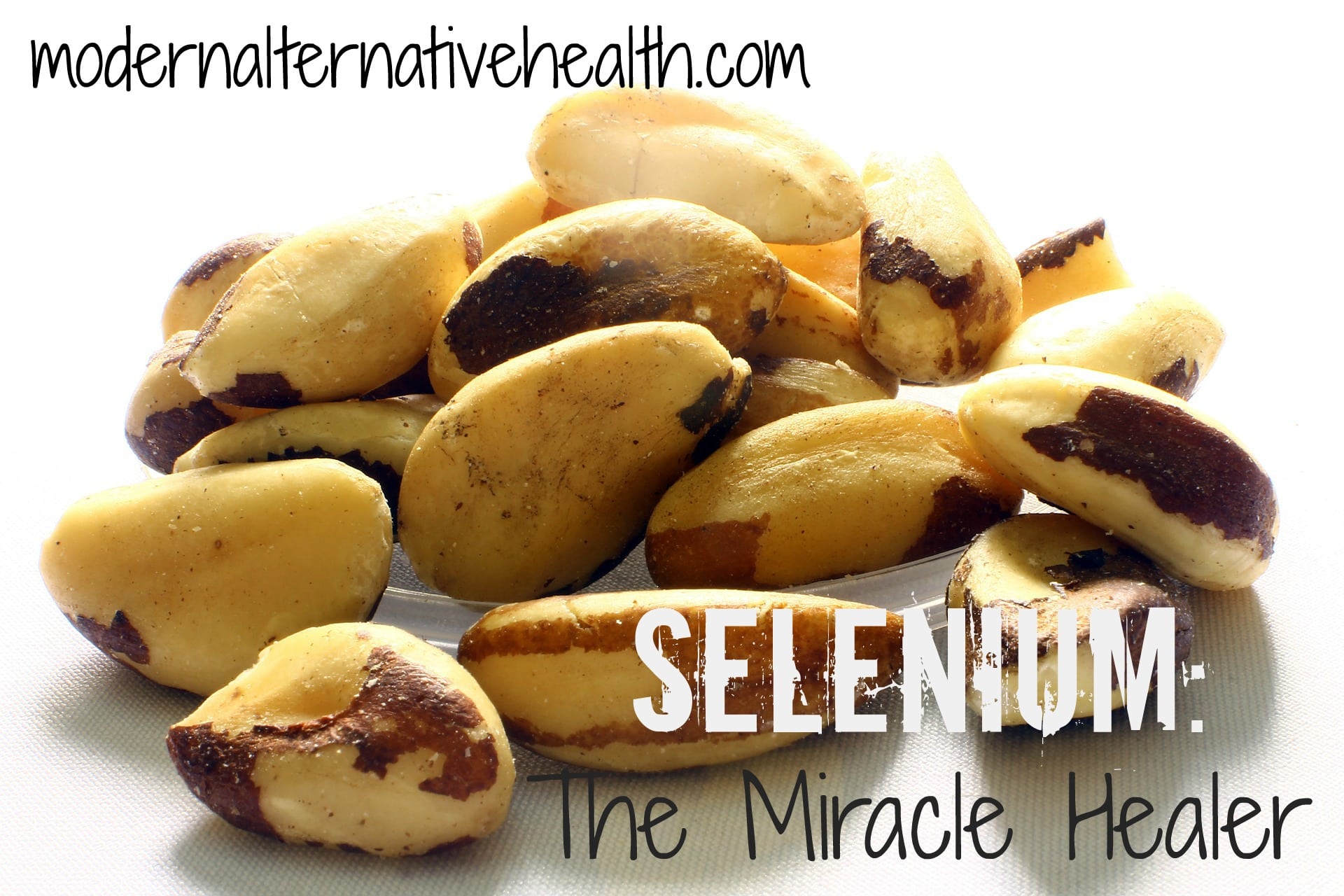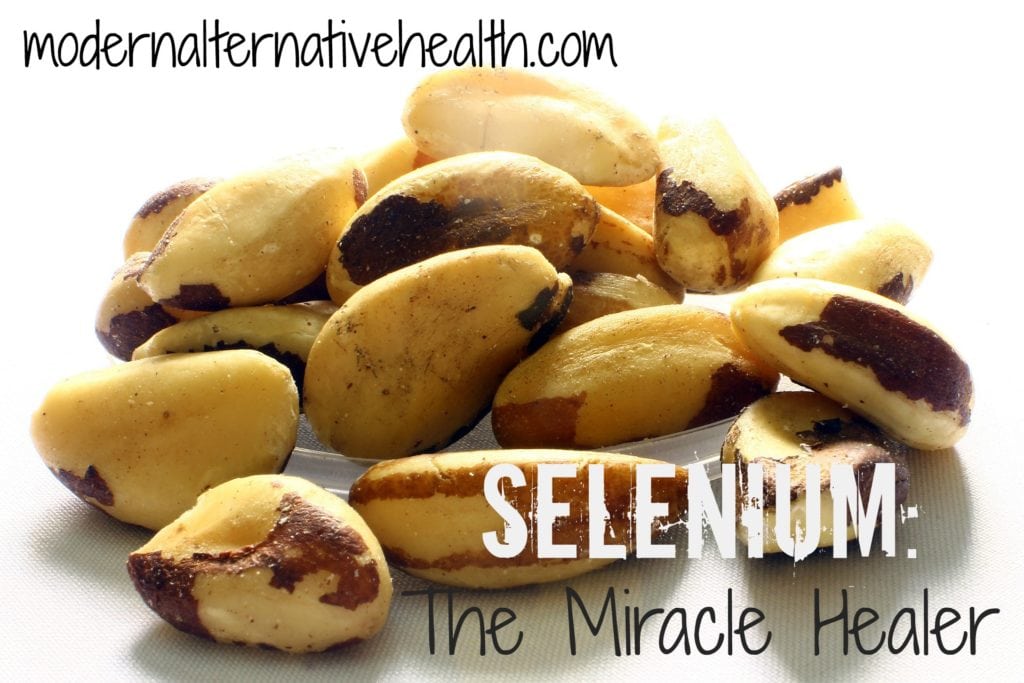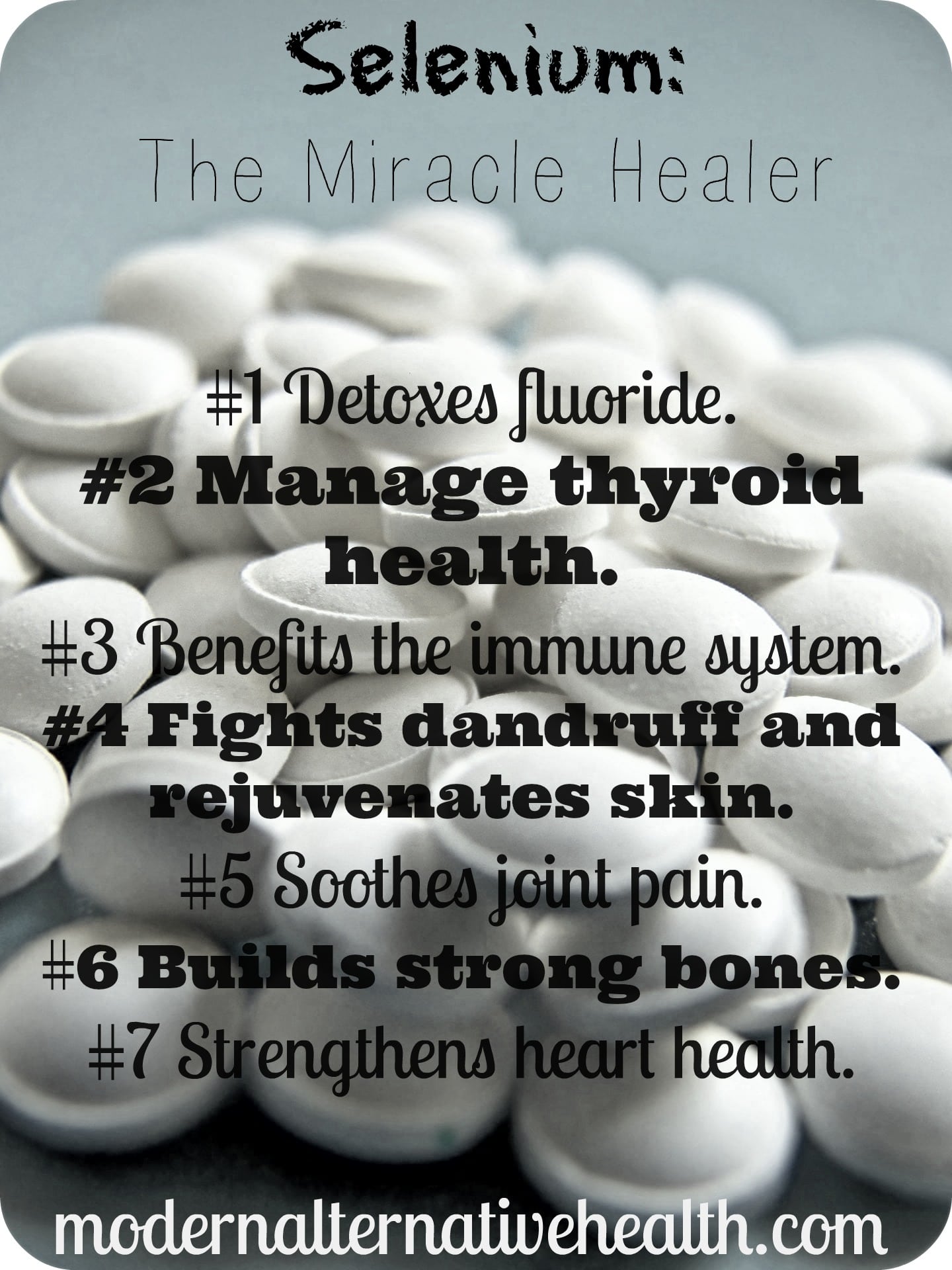 Image by Pixabay
Image by Pixabay
By Danielle, Contributing writer
When you think of miracle healing minerals, selenium probably does not top the charts. In fact, you may not even know about selenium.
Selenium is a mineral found in the soil, and also some water and plants and animal foods.The majority of selenium is stored in the muscles, and is an essential mineral made up of many proteins, called selenoproteins. Selenium is critical for thyroid hormone production, DNA synthesis, protecting against oxidative damage, and muscular health.
Selenium: The Miracle Healer
Numerous chronic illnesses are associated with selenium deficiency, including viral illnesses such as HIV, Chron’s, and many hormonal disturbances. Typical symptoms of low-grade selenium deficiency are muscle weakness and wasting, general fatigue, and thyroid issues. Many who suffer through chronic illness find that their selenium is deficient, and see benefit through supplementing.
Selenium’s Benefits
- Selenium plays an important role in your body’s overall health. Without it, your immune system will greatly suffer and you will be open to chronic illness. This is especially important for women, as selenium is an important precursor to creating adequate amounts of thyroid hormones. But, all ages and genders can benefit from ensuring they are consuming enough selenium. Here are some of selenium’s benefits:
-
Detoxes Fluoride
- Recent studies have shown that adequate selenium can actually aid the body in detoxing fluoride, a toxic metal added to our water (in bottled, as well as city tap water), toothpaste, and dentist offices. With fluoride linked to dozens of cancers, this alone is a reason to monitor your selenium consumption.
Manage Thyroid Health
If you are deficient in selenium, your body cannot create T4 hormone cells, nor generate T4 cells to the more usable T3 cells. Many believe that to properly heal the thyroid, especially in the case of hypothyroidism, that selenium is a precursor to adding iodine. The balance of these two minerals is absolutely critical to healing hypothyroidism. There may also be a benefit for those suffering from Hashimoto’s.
For certain women who are prone to poor thyroid function, supplementing selenium may prevent hypothyroidism appearing after giving birth, which is the case for many women.
It’s estimated that up to 20 million people in the United States have a thyroid issue, and 60% of people who likely have the disease are not aware. One woman in eight will suffer from thyroid disease in their lifetime. That’s a crazy high number, and I personally know many women who are dealing with the effects of hypothyroidism. Knowing that selenium, in addition to iodine, are key minerals to preventing thyroid issues make me want to ensure I have adequate selenium levels.
Benefits the Immune System
Glutathione has been called the most important antioxidant in the human body. Without it, detoxification is severely limited. In order for glutathione to be produced, adequate levels of selenium and iron must be present. There are also studies that indicate that it may aid in preventing cancer.
Fights dandruff and rejuvenates skin
Selenium’s rich antioxidant properties keep dandruff at bay (you can actually add a few capsules of selenium to your shampoo!) , and aid in regenerating new skin cells.
Soothes Joint Pain
One of the symptoms of selenium deficiency is joint pain. If you are suffering from general joint pain or are stiff in the morning, try adding more selenium to your diet.
Builds Strong Bones
Much of our minerals are stored in our bones (crazy, I know!). Selenium is actually critical to bone metabolism and the bones’ process of building new bone cells.
Strengthens Heart Health
Selenium helps your cardiovascular system tremendously by upping the good cholesterol, HDL. It also plays a role in preventing oxidation in your arteries.
Image by Pixabay
Natural Sources of Selenium
If your digestive system is working properly, you can likely intake the recommended amounts (below) of selenium by ensuring these foods are in your diet:
- – Seafood
- – Organ meats
- – Eggs
- – Chicken and turkey
- – Sunflower seeds
- – Fortified oatmeal, breads, and rice
- – Mustard
- – Garlic
- – Brewer’s yeast
- – Brazil nuts (over 544 mg per serving, by the far most selenium-rich food on earth)
How Much Do We Need?
It is possible, like any mineral, to consume too much selenium. Do not supplement more than the daily dosage requirements below, and monitor how you feel based on your dosing. Adults should not consume more than 200 mcgs of selenium per day, as overdosing is a possibility. Symptoms of overdose include hair loss and nail brittleness, irritability, and a metallic or garlic taste in mouth. Patients taking chemotherapy should also discuss with their doctor before starting a selenium supplement.
Recommended Daily Intakes of Selenium:
Adults and teens: 55 mcg
Pregnant women: 60 mcg
Breastfeeding women: 70 mcg
Infants (0-1): 15 mcg
Toddlers (1-3): 20 mcg
Children 4-8 years: 30 mcg
Children 9-13 years: 40 mcg
Who Is At Risk of Selenium Deficiency?
So, are you deficient in selenium? Likely. Though you do not need very much, our soil is severely depleted of minerals, and the majority of Americans’ diets include mostly processed foods, which are low in selenium. Vegans and vegetarians are more likely to suffer from selenium deficiency, as well as those who live in some parts of Europe in China, as the soil there is mostly void of selenium.
It’s ideal to ensure that you are getting enough selenium through natural, dietary sources. But, if you cannot meet the necessary daily value, it would be wise to supplement selenium.
The best selenium supplements are the whole food variety, such as this plant-based selenium or this nutritional yeast-based selenium. Steer clear of synthetic selenium, named sodium selenite and selenomethionine.
If you are consuming the recommended daily amounts of selenium, but seeing no increase in your selenium blood tests or in your health, it’s possible that you have an underlying gut issue that inhibits your body’s ability to utilize the selenium. In this case, seek out information and healing techniques for leaky gut syndrome; then, continue supplementing.
If you suffer from a chronic illness, are dealing with hypothyroidism, or worry that you are deficient, a blood test is the best way to measure your selenium levels.
So now you have it. This lesser-known mineral is the key to good health, and can be a miracle healer for those with chronic illness and thyroid hormonal imbalance.








Thank you so much for these information and the recipe. I really don’t doubt that nature can give us anything we need.